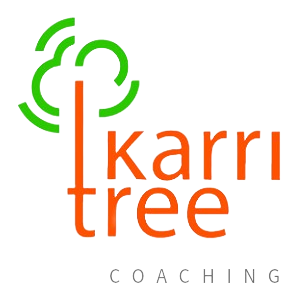Building Relationships With New People.
Do you need to build relationships with new people?
As a general rule, people build strong relationships with those they feel comfortable with. Here are five things you can do to make it easier for people to feel comfortable with you quicker.
1. Learn…
Learn about their priorities, goals, and objectives. Make the conversation about them not about you. Find out what they want to talk about and then ask them lots of when, what, and how questions. Just remember – it’s a conversation not an interrogation!
2. Be…
Be a passenger not the driver. If someone is steering a conversation a certain way, let it go that way. Even if it is not the right direction, hop on and see where it takes you. Do not try and pull it back; you will only disrupt the tempo and stop yourself from understanding where the person is heading. Allowing them to drive allows them to feel in control.
3. Allow…
Allow them to continue talking. Don't interrupt. When they have stopped talking take a pause before you do. When they stop, slowly count to ten before you start. While it may be frustrating, it does two things. First, it allows you to collect your thoughts before you start and second, it allows the other person space to continue talking should they wish.
4. Understand…
Understand their thoughts and opinions. Make a real effort to do this. You can start by asking things like: "How did that make you feel?" and "Why did that happen?" These questions not only encourage the other person to talk, but they increase your understanding of the other person’s emotions.
5. Leave…
Leave the other person feeling complete. Let the person finish their story and resist the desire to share your own. A person always feels better when they “get it all off their chest.” The number one goal should be to leave the other person feeling better for having spoken with you.
As you can see, the primary way to quickly build a relationship with someone is to start with a focus on them and allowing them to talk. If people feel that you listen to them, they will be much willing to interact with you more.
In addition to making the person feel better, listening intently results in you better remembering the details of what is said and understanding the storyteller’s position. You are able to extract more information that can be used in future conversations to make your message more relevant.
Once you have built the initial relationship, you can turn to achieving the tasks and goals that brought you together in the first place.
— Anthony

It does not matter how good you are at communicating, if the person you are communicating with is difficult to deal with then the communication becomes complicated. We all hate dealing with difficult people. They take more of your time and they can really wear you down. And let's be honest, they exist everywhere, whether it's with coworkers, family, or friends, you just can’t ignore them. I like to think that I don’t coach difficult people but I have coached lots of clients who work with difficult people. There are ways to try and make it easier and below are some helpful tips on how to manage these challenging interactions and end up feeling more positive. 1. Develop Effective Communication Strategies Suspend Judgment Before you even start, go in with an open mind. If you go in convinced that the conversation is going to go no-where you will not be surprised when it does, in fact, go no-where. Listen Actively Listening well is really important. This sounds easy but it is much more difficult to do when you don’t have a good relationship with the person who is speaking. When you're talking to someone who's being tough to deal with, make sure you don't cut them off or start thinking about what you're going to say next while they're still talking. Try to really focus on what they are saying and see if you can understand where they're coming from and why they are saying what they are saying. Ask questions if you need to, and show them with nods and your attention that you're really paying attention. Actually being interested in what people are saying has the effect of improving your understanding and at the same time it can have a calming effect on the person speaking as they feel they have your attention. Choose Your Words Carefully When it is your turn to speak, speak clearly and keep things simple. Avoid saying stuff that could make matters worse. It's not about winning an argument, but about getting along with each other. 2. Manage Your Emotional Responses Stay Calm If the other person is getting upset, remember to stay calm. Staying chilled makes a big difference. When you remain calm, you are able to stay balanced and focused on what the conversation is about. People generally find it difficult to keep yelling at a person who doesn’t yell back. Try to see things from their point of view. This is much easier to do when you are calmer. They might be dealing with tough stuff you're not aware of. Being understanding doesn't mean it's okay for them to act badly, but it can make dealing with it a bit easier. 3. Understand the Bigger Picture, Set Boundaries and Focus on What You Can Control Separate the Personal and Environmental Elements If someone's being difficult, ask yourself: Are they difficult all the time and with everyone or is it only in specific situations or only with you? To truly understand this you need to spend some time observing them from afar. If it is the situation that causes the issue, then try moving the discussion to a different place or time to focus on the conversation rather than the environment. Tell them that you have noticed these situations make them uncomfortable and even ask them to set the time and place that they are most comfortable with. If the issue is more personal and specifically related to your relationship, then you have to do your best to keep the conversation focused on the topic and not relationship. One way to do this is to acknowledge that the relationship has issues but that the purpose of the conversation is to solve or agree a way forward on a specific task or work related problem. The conversation is not designed to resolve the personal conflict. Define Limits and Accept What is Achievable While it is important that you remain calm and actively listen, you should also be aware of your limits and be firm when they are crossed. Be clear on what actions you're not okay with. Like, "I would appreciate if you don’t yell" or "Using that type of language doesn't help." At the end of the day, it's really important to take care of your mind and feelings. While it may be that they have their own stuff going on which is causing the problem, don't let their own issues become yours. If you need to, you can suggest that they get help. If it gets out of your control do not be afraid to step back or seek help. Ultimately You Can’t Change Who People Really Are While you can improve things by taking the time and making an effort to understand difficult people, you ultimately can't change who they are. You can only choose how you react to them. 4. Get Better by Reflection and Coaching Learn from Each Interaction As interactions with difficult people are not a single event, or sometimes not even a single person, you should take the time to consider what went well and what didn't. Learn from this so you do better in your next attempt. Work with a Coach If you are running into problems, cannot seem to go anywhere and its really important, get some help. Think of working with a coach (I am always available), it's smart to talk to people who can help you see things from an external perspective. They can help you see things about yourself that you can’t or many don’t what to see. A couch can give you some helpful tips. Conclusion Dealing with difficult people gets easier with practice, staying calm, and focusing on the outcome not the person is important. Use these methods to make the best out of tough situations. Don’t become a difficult person as a way of dealing with a difficult person.

It is one of those days at work: you're super busy and your schedule is packed. This is the day when someone asks you to do even more. Are you the type of person that feels bad saying "no?" This feeling is normal, but remember, saying "no" is important for your own health, happiness and performance. Here's a simple guide on how to do it without feeling guilty: Express Gratitude Start with a Thank You: When someone asks you for something, start by thanking them. It shows you appreciate their request even if you can't fulfill it. This not only softens the impact of your refusal but also maintains a positive tone in your communication. For example, “Thank you for thinking of me for this project. I really appreciate your trust in my abilities.” Be Clear and Direct Just Say It: You don't need to make up excuses. A simple "I can't do this right now" is clear and respectful. Being straightforward helps avoid any misunderstandings and sets clear expectations. Offer a Reason, Briefly Keep it Simple: If you decide to explain, make it brief. A reason like “I’m currently managing multiple deadlines and can’t commit to more work right now.” is enough. Over-explaining can sometimes lead to unnecessary justifications and may make you seem unsure. Suggest an Alternative Help Differently: If you can't do what they're asking, maybe there's another way you can help. For example, if you can't attend a meeting, offer to send your ideas by email beforehand. Maybe you can suggest that you meet up tomorrow to discuss it when you have time. This shows that you’re still willing to contribute, just in a different way. Use Assertive Language Be Confident: Use clear and confident language. Instead of saying "I think," say "I know" or "I'm sure." Assertive communication conveys confidence and clarity, which helps in establishing boundaries effectively. For example, “I know this is an important task, but I must focus on my current priorities.” Practice Self-Care Remember Your Worth: It's not selfish to say "no." It's about taking care of your mental and physical health. Regularly reminding yourself of this can reduce feelings of guilt. Self-care is essential for maintaining long-term productivity and job satisfaction. By setting boundaries, you can ensure that you can continue to perform at your best. Redirect Positively End of a High Note: After saying "no," try to end the conversation positively. Maybe suggest another time you could help out or express your interest in working together in the future. Regularly reminding yourself of this can reduce feelings of guilt. Maintaining positive working relationships are essential for long-term productivity and job satisfaction. In short, saying "no" is about respecting your own limits and making sure you don't get overwhelmed. Think of it like having safety ropes around your time and energy - it's clear but friendly. By implementing these strategies, you not only protect your well-being but also model healthy boundaries for your colleagues. It’s a critical skill in maintaining a balanced work environment. Setting boundaries helps ensure you remain effective and productive in your role, ultimately benefiting everyone involved. So next time you’re faced with an additional request, remember these tips and give yourself permission to prioritize your own needs.

Electronic calendars are a fantastic tool. They allow you to know where you need to be and when you need to be there where ever you are in the world. If you want a meeting with someone, you can just send them an invitation and it shows up in their calendar and now that virtual meetings have taken off and have even become a preference they can even be arranged at short notice. There is a downside to this - do you now spend your life in meetings? Do you open your calendar in the morning and see no white space? How can you get more control over this? I suggest you ask three simple questions when anyone asks for a meeting: 1. Is it URGENT? 2. WHAT is it about? 3. How LONG do you need? Asking these three questions really focuses the mind of the people wanting to meet you. You'll know: 1. How important it is; 2. Whether its something you want to meet about; and 3. A realistic time fame If you ask these questions you will be amazing at how many 15 minute meetings appear in your diary. And after 15 minutes you can throw them out. One final point - if you have a personal assistant, get them to ask the questions and remove the administrative burden altogether. If you would like to know more feel free to contact me below.


